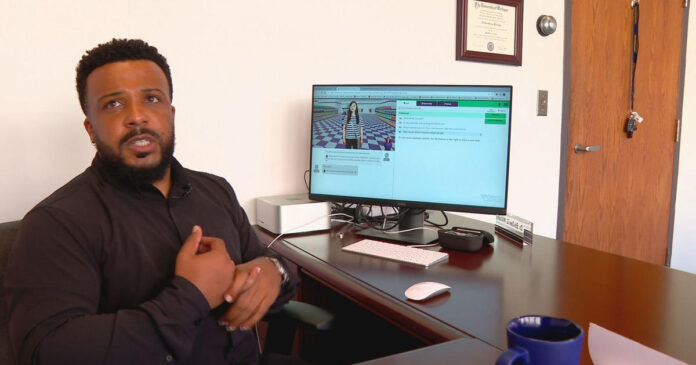
NEWTON, Massachusetts (WBZ) — A Boston College professor is developing a virtual program to help Black youth with autism talk about their mental health.
“The goal of this is, first off, direct exposure to conversations about depression, we lower stigma, the more you talk about it, the less stigmatizing it is,” Professor Ed-Dee Williams told WBZ-TV.
Williams grew up with an older brother on the spectrum and dedicated his educational career to studying race, the disorder, and mental health. He said when he first started, there wasn’t a lot of research. “I started doing Google scholar searches, PubMed searches, trying to get an understanding of what was out there with Black youth and autism and it’s very sad to say there’s very little,” he explained.
He wanted to know what the depression rates for Black autistic youth looked like, “given there’s communication deficits, they experience bullying, higher incarceration rates, and higher suicide rates,” he said. So, he researched even further.
“Nothing. Not a single article that specifically examined depression among Black autistic youth,” he said.
But Williams knew there had to be something there.
“When you take the experience of being autistic, being disabled, and then you compound that with being Black and discrimination and racism and these different things that we know impact Black youth, there has to be something here,” he told WBZ. He took on the research himself and found that there was something there and decided something should be done about it.
He’s collaborating with SIMmersion, a company that’s produced similar programs virtual role-playing conversation training for autistic people that Williams has worked on with his mentors.
“What I’m hoping is that this tool, first of all, is it’s feasible. As I have Black autistic youth, I have their caregivers and families testing it. They say ‘Yes, this makes sense, this will help us,'” he told WBZ.
The way it works is you choose the symptom you’re feeling and practice telling an actor, who’s playing a special education teacher with pre-recorded responses, about them. There are different responses. Some are better than others. The program works with you in real-time on finding the best ones until you feel confident telling someone in real life.
“The tool teaches effective communication skills. Here’s the best way, based on what we know from research, to get someone’s attention. Here’s a proper way to explain your symptoms,” Williams explained.
They’re still in the testing phase with the program. He’s put the script in the program and is actively getting feedback. He chose a special education teacher as the character because his research showed that young Black boys tend to seek out teachers who are supportive to express what’s going on in their lives.
“Teachers are often the first line of defense. They’ll say, ‘I go to my teacher when I’m sad because I see them every day. I know them. I’m comfortable with them,'” he said.
Williams said from his research, symptoms of depression in Black youth can look different than other races, so they’ve based the program on understanding those symptoms. His goal is if youth can learn the language to talk about mental health then they’ll be able to communicate better about it.
He is working with the actor who will play the special education teacher this month and hoping to do a feasibility study for the program by the end of the year.
The-CNN-Wire
™ & © 2023 Cable News Network, Inc., a Warner Bros. Discovery Company. All rights reserved.


